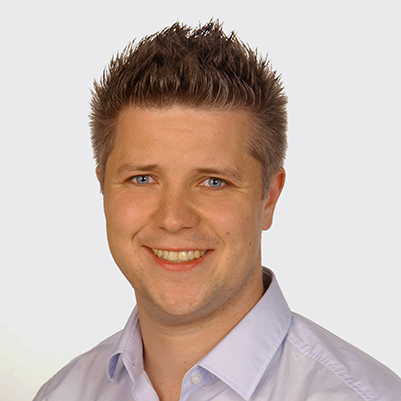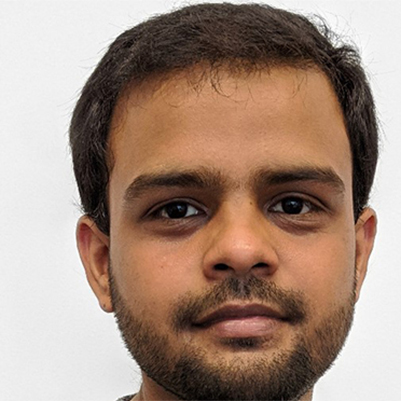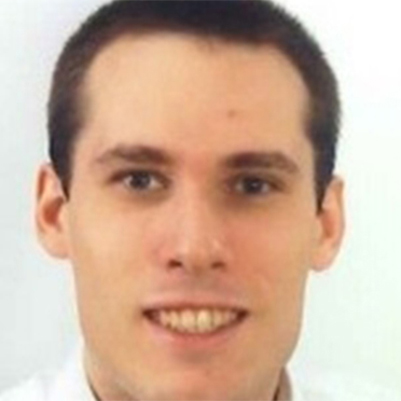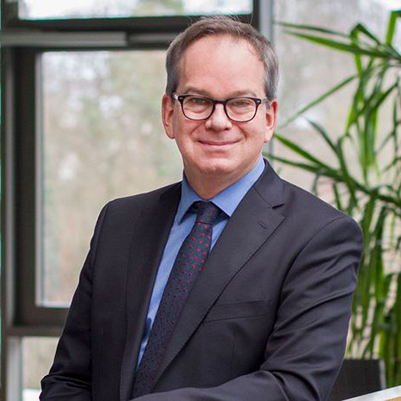Channel-PUFs: AI-Assisted Channel Estimation for Enhanced Wireless Network Security

Abstract:
Next Generation Mobile Networks (NGMNs) are entering existing and future (industrial) wireless networks, associated with advantages such as higher data throughput, low latency, operation in almost real-time, and the microcell approach. However, this development also comes with drawbacks in the form of new attack vectors and security threats. Within this work, Physical Layer Security (PhySec) methods—the Channel-based Physically Unclonable Functions (PUFs)—are applied to derive symmetric cryptographic credentials and to establish a trustworthy sound, and secure communication between interacting entities. This is done by using a real-world implementation of an NGMN testbed to evaluate the adaptions to mobile radio. Artificial Intelligence (AI) in the form of the Linear Regression Algorithm (LRA) is applied to enhance the accuracy of the estimated channel profiles.
AUTHORS

German Research Center for Artificial Intelligence Intelligent Networks Research Group Kaiserslautern,
Germany
Christoph Lipps received a B.Sc. and M.Sc. in electrical engineering from the University of Kaiserslautern (TUK), Germany. Since 2015, he has been a researcher at the German Research Center for Artificial Intelligence (DFKI), which is the biggest European AI research institution and is the birthplace of the “Industry 4.0” strategy. Meanwhile, he is a Lecturer and PhD candidate at the TUK as well. His research interests include Physical Layer Security (PhySec), Physically Unclonable Functions (PUFs); Artificial Intelligence (AI); identification and authentication of various entities, including biometric authentication of humans; as well as cyber security in general. In these areas, he is the author of about 20 scientific publications, has been in the TPC, has served as a reviewer for many conferences and journals, and has participated in a number of German and European research projects such as CoCos, IUNO and SCRATCh .

University of Kaiserslautern Division of Wireless Communications and Radio Positioning Kaiserslautern,
Germany
Sachinkumar Bavikatti Mallikarjun received a B.Eng from RV College of Engineering, India, in 2014 and an MSc. degree in Computer Science from the University of Kaiserslautern, Germany, in 2019, where he is currently pursuing a Ph.D. with the Institute for Wireless Communications and Navigation, Kaiserslautern. In 2019, he joined the Institute for Wireless Communications and Navigation as a Researcher. He has been involved in the 5G Modellregion Kaiserslautern project and has contributed to over 6 peer-reviewed publications. His research is in areas of Physical Layer Security, context awareness, mobility, and resource management of cellular networks.

German Research Center for Artificial Intelligence Intelligent Networks Research Group Kaiserslautern,
Germany
Mathias Strufe received his diploma in Communications Engineering at the University of Applied Science (Kaiserslautern) in 2010 and in parallel a B.Eng. with First Class Honors in Electrical and Electronic Engineering from the University of East London. Since his start at DFKI in the Department of Intelligent Networks, he has been involved in several EU and nationally funded research projects with topics on AI based 5G network management in industrial environments. (mathias.strufe@dfki.de)

German Research Center for Artificial Intelligence Intelligent Networks Research Group Kaiserslautern,
Germany
and
University of Kaiserslautern Division of Wireless Communications and Radio Positioning Kaiserslautern,
Germany
Hans Dieter Schotten is Full Professor and Director of the Chair for Wireless Communication and Navigation of the University of Kaiserslautern. He is also a Scientific Director and member of the management board of the German Research Center for Artificial Intelligence (DFKI) where he heads the Department for Intelligent Networks. Before joining academia, he held industry positions in Ericsson and Qualcomm. Since 2018, he has been the Chairman of the German Information Technology Society ITG and a member of the supervisory board of the German VDE. His research interests are in mobile and industrial communications, network security, and AI. Hans Dieter Schotten received his Diploma and PhD in Electrical Engineering from the RWTH Aachen University in 1990 and 1997, respectively.
Published In
Journal of Information Warfare
The definitive publication for the best and latest research and analysis on information warfare, information operations, and cyber crime. Available in traditional hard copy or online.
Quick Links
Archive

